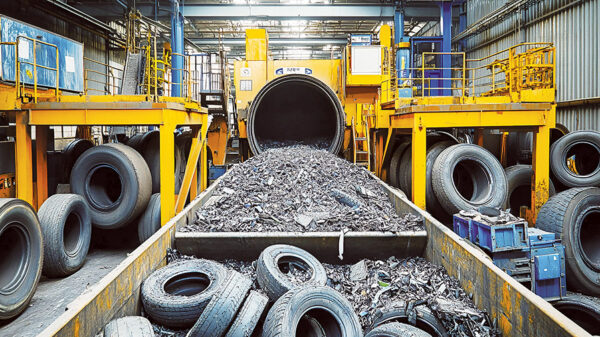Nine more locations in Michigan will soon offer electric vehicle fast charging stations under a second round of grants that total $448,204 awarded today by the Michigan Department of Environment, Great Lakes, and Energy (EGLE).
 The installations will continue to build out a network of direct current fast chargers (DCFC) that EGLE is partially funding at strategic locations around the state to provide drivers worry-free travel. EGLE’s Charge Up Michigan Program offers up to $70,000 per charging station to public or private entities in partnership with the host site and local utility for site preparation, installation, signage and network fees. The goal is to have the network, funded through Michigan’s allocation from the Volkswagen diesel settlement, completed by 2030.
The installations will continue to build out a network of direct current fast chargers (DCFC) that EGLE is partially funding at strategic locations around the state to provide drivers worry-free travel. EGLE’s Charge Up Michigan Program offers up to $70,000 per charging station to public or private entities in partnership with the host site and local utility for site preparation, installation, signage and network fees. The goal is to have the network, funded through Michigan’s allocation from the Volkswagen diesel settlement, completed by 2030.
These grants includes six new charger locations and three expansions of previously awarded projects, for a total of 18 charging ports.
Grant funding is still available and priority consideration will be given to future applicants who propose installing DC fast chargers in the Upper Peninsula, northwest or northeast Lower Peninsula, southwest Michigan near the border with Indiana and southeast Michigan near the border with Ohio. The Charge Up Michigan website provides a state map and preferred locations list of funded chargers and where they are still needed under the build-out plan.
In August, EGLE awarded $1.7 million in grants for 36 DC fast charging stations with a total of 76 plug-in points for automobiles and light-utility vehicles. Many of those stations are in operation and others should be available soon.
EGLE is committed to the future of mobility through investment in infrastructure that is needed to support EVs and it has identified optimal charger locations across Michigan. An expanded EV fast charging network in Michigan will boost driver confidence that chargers will be available and operational in a well-lit, safe environment, improve air quality, reduce vehicle emissions, and protect public health and the environment.
Questions about the program, grant opportunities and possible charger locations should be directed to Julie Staveland, State Energy Program Specialist, at StavelandJ@Michigan.gov.
Published in the February 2021 Edition






